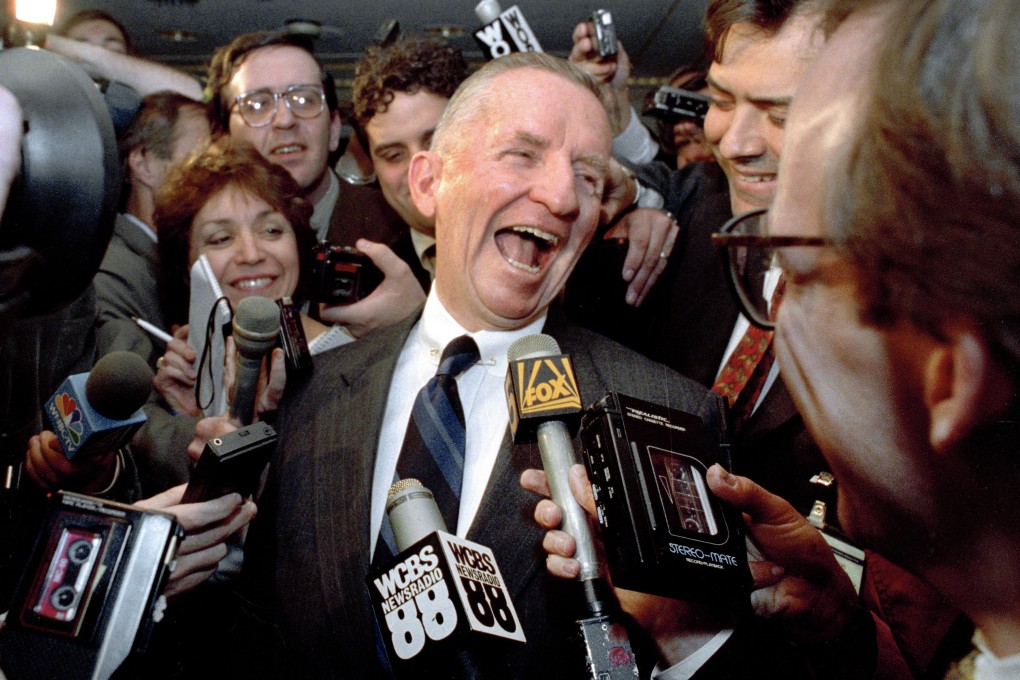Did Ross Perot give us Donald Trump? His anti-free trade 1992 campaign certainly gave us the blueprint
- Perot was the original quotable outsider businessman to become a presidential front-runner through free trade scepticism
- His strange 1992 campaign may also have given us Bill Clinton’s presidency, setting the wheels in motion for Trump’s rise

One day NeXT’s head of sales came up to my friend after receiving a phone call from Perot. Like Perot, he had been a star IBM salesman, and he idolised the older man. My quotes aren’t exact, but close enough. “I have a new definition for ‘mixed emotions’,” he began, riffing on a common joke genre of the day. “Ross just called me. He’s never done that before. I was elated.” Then the punchline: “He spent a half hour telling me I’m doing a s****y job.”
It wasn’t the sales guy’s fault. Perot and other high-profile industry experts, who were part of a NeXT advisory board Jobs had formed to tap their expertise, had told Jobs clearly what guts and features to put in NeXT’s iconic cube-shaped computers, and how to price them. Jobs largely ignored them. Perot resigned in 1991, and NeXT was soon out of business.
His entry into the 1992 presidential race was unique. “You register me [on the presidential election ballot in all] 50 states” and I’ll run, he told the American people on Larry King Live one night in February. This required grass-roots organisations and collection of thousands of signatures in each state – a lot of work – done mostly by volunteers. Beholden to nobody because he was financing his own campaign, he said bluntly what Americans, sick of business-as-usual politicians, were thinking – “We own this country” – and they loved it. His early campaign had the febrile energy of Trump’s campaign 24 years later, without the nastiness or hate.
We didn’t know if he could win, but we knew it sure would be fun listening to the guy every day if he did. By June he was leading both George H.W. Bush and Bill Clinton in nationwide polls.
